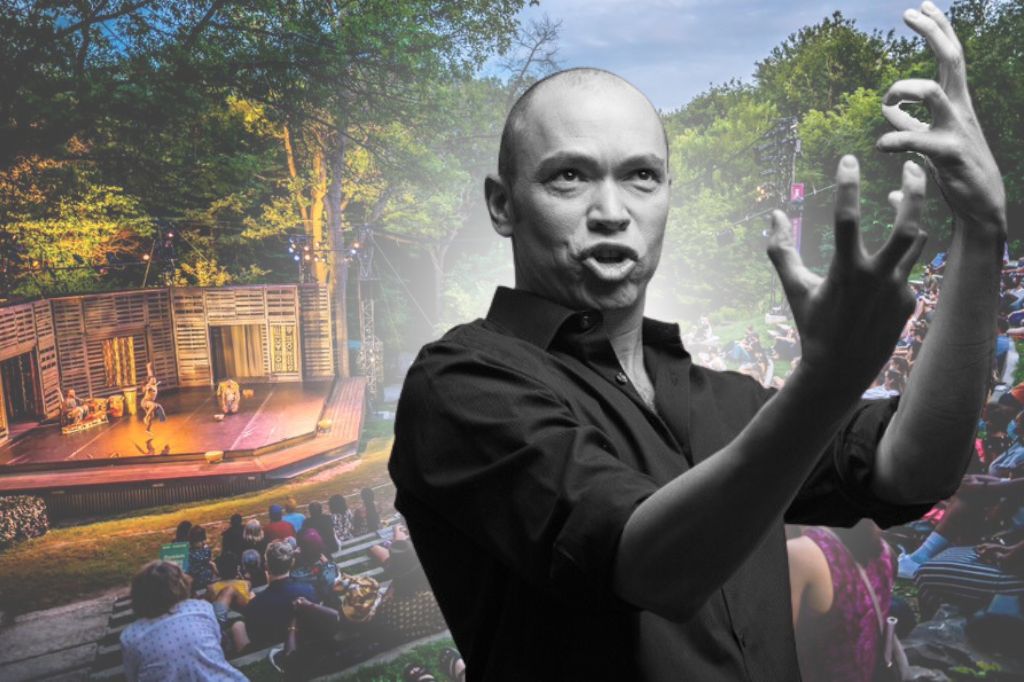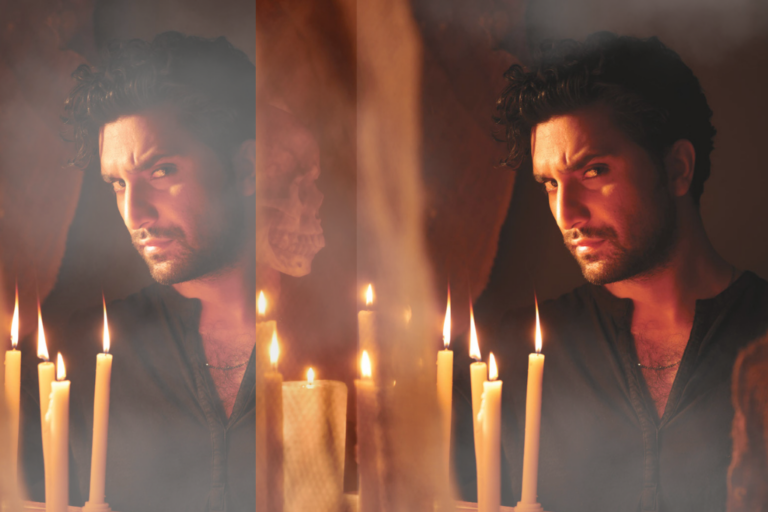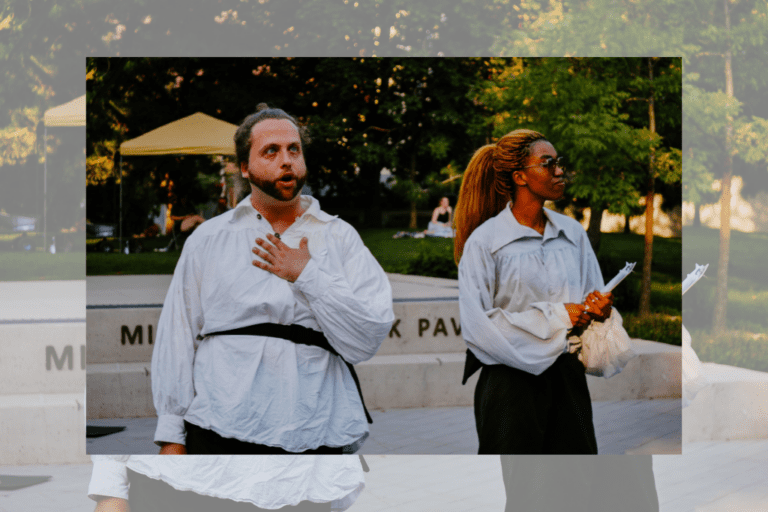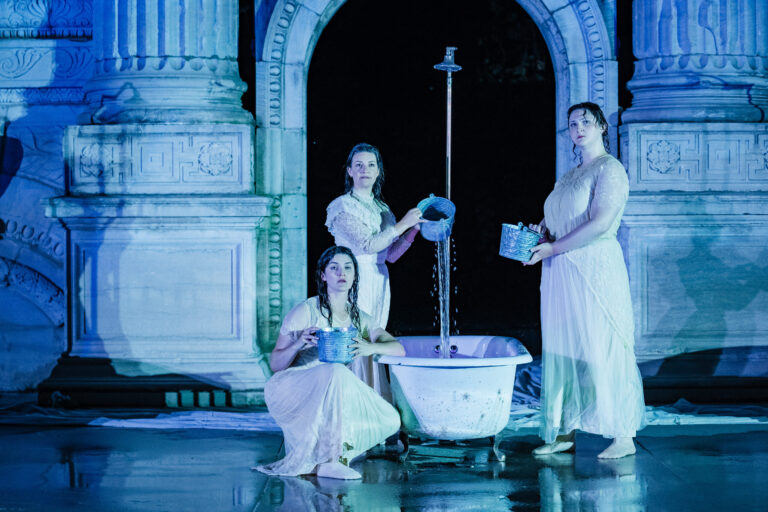A Midsummer Night’s Dream in High Park: In Conversation with Jamie Robinson
“I can’t give you all my secrets. But we have some awesome tricks up our sleeves.”
Watching Jamie Robinson talk about Shakespeare is a magical experience. It’s no wonder he was selected to direct the upcoming classical production at Canadian Stage’s Dream in High Park: the actor, director, and writer lights up, alternating between moments of introspective analysis and bursts of excitement as he weaves through nuanced discussions of the Bard’s work. It’s the type of enthusiasm and understanding that only occurs in people who are truly passionate about what they’re discussing.
That passion and drive is particularly important as this year’s production marks an exciting occasion.
“It’s the 40th anniversary of [Dream in High Park], and A Midsummer Night’s Dream was the first show that was done there,” Robinson explained in an interview. “I’ve performed in the play once before, so when I was asked to direct, I said yes, absolutely. I would love to explore the show from another angle.”
Since Robinson came on board in August 2022, the production has been a whirlwind of possibility. Canadian Stage finalized casting in January and held a workshop with the actors in February. Meanwhile, Robinson has been busy paring the script down to 90 minutes — a drastic change from the almost three-hour original script — and bouncing between design meetings as the company develops the world of the play.
“The show is called A Midsummer Night’s Dream,” Robinson said. “It’s a dream, which means anything’s possible. So I thought, let’s lean into that.”
It’s a wide net to cast, but Robinson has put plenty of thought into this production, and how he would like to frame it in the context of the contemporary world. While he may not have known that Canada would quite literally be on fire this summer, he kept returning to one deeply relevant topic: the changing climate.
“When I reread the play way back in August, the speech that kept coming back to me was Titania’s speech in Act 2, scene 1. ‘These are the forgeries of jealousy,’ which goes into a lengthy discussion about climate change… I could not get that out of my head. I asked myself, why does this still resonate today when it was written 400, 500 years ago? As a director, it’s if something sticks with me, then I have to pursue it.”
The ever-evolving effects of climate change have been all too present for Robinson over the years he’s worked as a performer in various outdoor productions. He spent two seasons with Montreal’s Repercussion Theatre while an undergraduate at Concordia University, and has performed in four iterations of Dream in High Park. Robinson was also the artistic director of Scarborough’s Guild Festival Theatre for three years, directing two outdoor productions during his tenure.
“I’ve seen how that narrative [about the changing climate] has transformed,” he explained. “It used to just be, ‘is there going to be a thunderstorm? Is it going to rain?’ But in my final year at the Guild Festival, the question became, ‘is it too hot?’ And that was a legitimate concern. So with this adaptation and everything that’s going on with our weather, our climate… I think Titania says it all in that speech. And I’m really, really curious to see where we can take that.”
While the considerations around outdoor theatre have grown with every passing year, there are still plenty of benefits to performing in the park. Live, outdoor theatre provides many opportunities for audiences to connect, communities to grow, and for Torontonians to explore the beauty of their city. A Midsummer Night’s Dream remains the most-produced Shakespearean play in the 21st Century, and a popular choice for open-air theatre, and not simply because of its family-friendly appeal.
“The whole [story] takes place in less than 24 hours,” Robinson noted. “You start the show at eight o’clock, when it’s still bright out — and the story starts during the day. Then as night falls in the forest, the sky over the theatre is getting darker and darker. It’s [the perfect show] for an outdoor venue.”
While cutting the script, Robinson found a myriad of ways to keep the story alive and true to the text while leaning into relevant, contemporary topics. From global warming to the identity of the changeling child, the source material provided the actor-director with plenty of inspiration.
“I really wanted to lean into this idea of the shadows,” he said. “‘If we shadows have offended,” Puck says at the end. There’s almost always double-casting in Midsummer: often, the actor who plays Titania in the fairy world is also Hippolyta in the real world. We’re asking, ‘what does that actually mean?’ Can these characters, these ethereal beings actually be shadow selves, or shadows of themselves? So we’re really leaning into that with every performer in the show.”
Despite focusing on some of the more socially and politically charged themes of the script, the family-friendly nature of the show isn’t lost on Robinson.
“Something that I really love about this play is that it’s family friendly,” he said. “The reason Dream in High Park is so successful is because families come to see it, from newborns to centenarians. Having that in mind, I wanted to make sure that we kept that family fun. There’s still lots of comedy in it.
“The actors get to have fun with it. And I think the audiences will have fun with it too.”
A Midsummer Night’s Dream plays as part of Canadian Stage’s Dream in High Park July 21–September 3, 2023. To find out more or purchase tickets, click here.















Comments